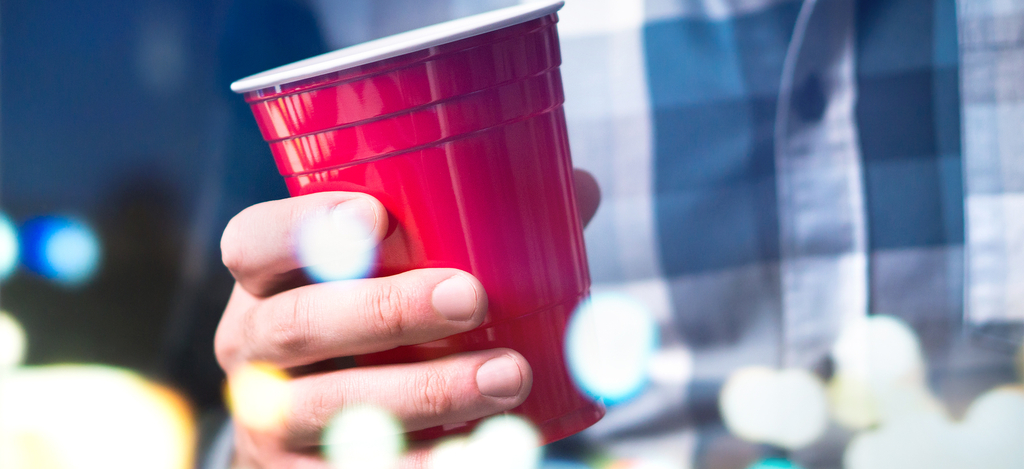Most Commonly Abused Drugs in College
The Challenges of Campus Life
Table of Contents
Many college students feel pressured to try new things, citing that they abused drugs as a result of this pressure.
However, peer pressure is not the only reason for substance abuse in college.
Moving from your teens into adulthood is challenging.
Most college students have will experience the freedom they have not had before.
Being detached from family and close friends, this freedom can be lonely.
Additionally, the pressures and stresses that come with college courses are new.
And the chance to abuse alcohol and drugs is around every corner.
But substance abuse only gives you one more thing to worry about.
Immediate Placement in Alcohol Rehab
Understanding Alcohol Abuse on College Campuses
Perhaps for the first time, a college-aged individual has easy access to alcohol and is facing increased stress levels and new pressures.
There are many reasons that college students turn to alcohol.
Some choose to drink for fun, some use it to combat stress or anxiety, and others drink simply to fit in.
Heavy school workloads, jobs, and family problems are other contributing factors. Alcohol is easy to find.
College parties and group gatherings make it particularly easy for students to binge drink without consideration for the consequences.
The long-term complications associated with long-term alcohol abuse are both mental and physical.
By building up this unhealthy habit now, it can become harder to handle later.
Individuals aged 18 to 22 are the most likely demographic to abuse alcohol.
Many will develop an addiction that will follow them for many years.

Effects and Abuse:
Alcohol and Social Groups
Research has highlighted a link between fraternities and sororities and alcoholism, as well as the general links drawn to college campuses.
Studies show that individuals in these groups were more likely to be identified as binge drinkers a full decade later.
As a young college student, it may be difficult to see as far ahead as your early to mid-thirties.
We all see alcohol in famous movies, TV shows, and in most of our homes as we grow up.
We see it in front of us at social gatherings, holidays, and other celebrations.
Binge drinking is presented as a normal part of socializing. This misleading normalcy undermines the damage that alcoholism causes, and it only serves to make it easier to get there.
It makes it easier for you to become addicted and feel compelled to hide it.
But, binge drinking leads to alcoholism, a chronic disease that refuses to be ignored. Over time, it will only get worse.
Commonly Abused Drugs in College
Several commonly abused drugs remain the same across different ages, genders, and walks of life. But for this particular demographic, some of the most commonly abused drugs in college include:
- Alcohol
- Benzodiazepines
- Marijuana
- Stimulants
Alcohol is commonly known as the primary substance of choice on college campuses.
Marijuana is also common.
However, young adults also account for another important statistic, which is that individuals aged 18 through 29 show the highest rates of benzodiazepine abuse.
Prescription benzodiazepines, like Xanax, are used to treat anxiety, stress, sleep disorders, and several other mental health conditions.
When it comes to these types of substances, college students are often obtaining them through other means. They are often purchased, traded, or stolen.
Ritalin and Adderall, central nervous system stimulants used to treat attention-deficit hyperactivity disorder, receive a lot of attention from this demographic.
Known as “study drugs,” these are purchased or swapped regularly on college campuses.
When used appropriately, they increase focus and concentration.
However, studies in this area have revealed that legal and long-term medical risks are not worth the fleeting improvements.
These stimulants alter your brain chemistry, making it difficult to quit on your own and easy to become addicted.
Other Commonly Abused Drugs in College
Drug addiction on college campuses tends to fall into the categories of alcohol, benzodiazepines, marijuana, and stimulants.
Ecstasy is another one of the most commonly abused drugs in college and its effects are troubling.
This drug can alter your mood and perception. Temporarily, it can increase your energy levels and feelings of emotional warmth. When it kicks in, your body hits unnatural levels of these pleasant feelings, creating an explosive feeling of happiness due to increases in dopamine.
But, the crash that comes next is particularly unpleasant and leaves most ecstasy users feeling overwhelmingly depressed. The brain quickly becomes reliant on these unnatural levels of dopamine and starts to struggle to produce them naturally.
Addiction, overdose, suicide attempts, and emergency room trips are very common in those abusing ecstasy.
Of each of the most commonly abused drugs in college, this is one of the most troubling.
Learn More About our Residential Rehab Program
Alcohol and Drug Rehab
Whether you are seeking addiction treatment for alcohol or one of the most commonly abused drugs, we can help.
Our programs are uniquely designed to effectively address a variety of addictions, underlying mental health concerns, and related complications.
Our research-based, comprehensive treatment programs will be adapted to meet your unique addiction and needs.
This allows us to focus on getting you back on the right track instead of trying to fit you into a pre-designed program.
We employ a variety of effective therapies, from individual to family sessions, and support groups to help you evaluate, address, and improve.
Stress and addiction management training, relapse prevention skills, and holistic care methods will give you a well-rounded approach to sobriety.
We also offer a variety of peaceful addiction treatment settings to provide you with the right level of care.
Treatment
Depending on the nature of your addiction, needs, and abused drugs, we will work with you to determine the appropriate treatment setting.
Residential rehab offers treatment for a vast array of abused drugs. The same is true for alcohol abuse.
This method offers you the highest level of care. With 24-hour access to medical, physical, and emotional care, support, and guidance, it gives you the highest chances of success if you have a moderate to severe addiction.
But, with school and other scheduling concerns, we understand that this is not an option for everyone.
To ensure that you are getting the care you need and deserve, regardless of your schedule, we offer alternative options as well.
We will work with you to develop a comprehensive care plan in one of the following settings:
- Residential or inpatient rehab
- Partial hospitalization program
- Intensive outpatient program
- Outpatient rehab
- Long-term rehab
We also offer aftercare addiction treatments for continued care, support, and guidance after you finish a more intensive program.

Payment Options
Do you want treatment but are worried about how you can pay for it?
We have a team of financial professionals who provide free insurance verification.
We will work with you to determine how to move forward with the treatment in a way that works for you and your financial situation.
Free Insurance Verification for Alcohol Rehab
How to Get Help
When you are busy adjusting to life as a college student, you have enough to worry about.
Let the caring and knowledgeable staff at Emerald Isle help you work through your substance abuse.
We will teach you how to build healthy habits, coping mechanisms, and sober social networks to achieve long-term success.
Let us help you get back to enjoying time with your family and close friends, learning every day, and pursuing a better future.
Call Emerald Isle at 855-613-0620 to schedule your consultation.








